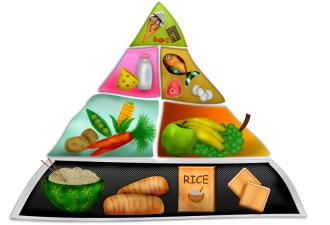
Nuts in children's diet
A healthy diet is necessary for everyone. But when it comes to children, who have increased nutritional needs for growth and formation, then it becomes vital. The provision of a balanced diet for covering the desired intake of all nutrients can also establish the foundations for good eating habits in the future.
Add nuts to children's diet
A handful of nuts and especially almonds is a valuable option. They are a highly nutritious food, rich in omega-3 fatty acids, classified as healthy fats, in natural fibres, protein and a variety of vitamins minerals and antioxidant ingredients.
At what age to introduce nuts
The use of nuts in the diet of infants and children, has created some concerns about how to use them to prevent choking and the risk of allergic reactions. Below are listed some information to be considered.
- Some believe nuts should not be introduced in children's diet before the completion of the first year of life, in order to avoid allergic reactions. This theory, however, is rather weak, as it is not supported by research evidence or is documented by very few.
- On the contrary, research evidence shows that the delay in use can increase the risk of allergic reactions in later life.
- You should NEVER give whole almonds to children younger than 5-years-old, due to the risk of choking. But you can mash them in a pureed meal, so that children may enjoy the benefits by their consumption.
- When you start giving them whole almonds, be sure that they eat them in seated position and supervise them constantly. Encourage them to eat small portions and chew them very well.
Advice
The nutritional information and recommendations on infant-toddler diet are indicative and refer to general guidance for this age group. Time that every child can be introduced to solid foods or add more to it’s diet, must be individualized. We recommend to set advise from your pediatrician about the specific nutritional needs of your child.











